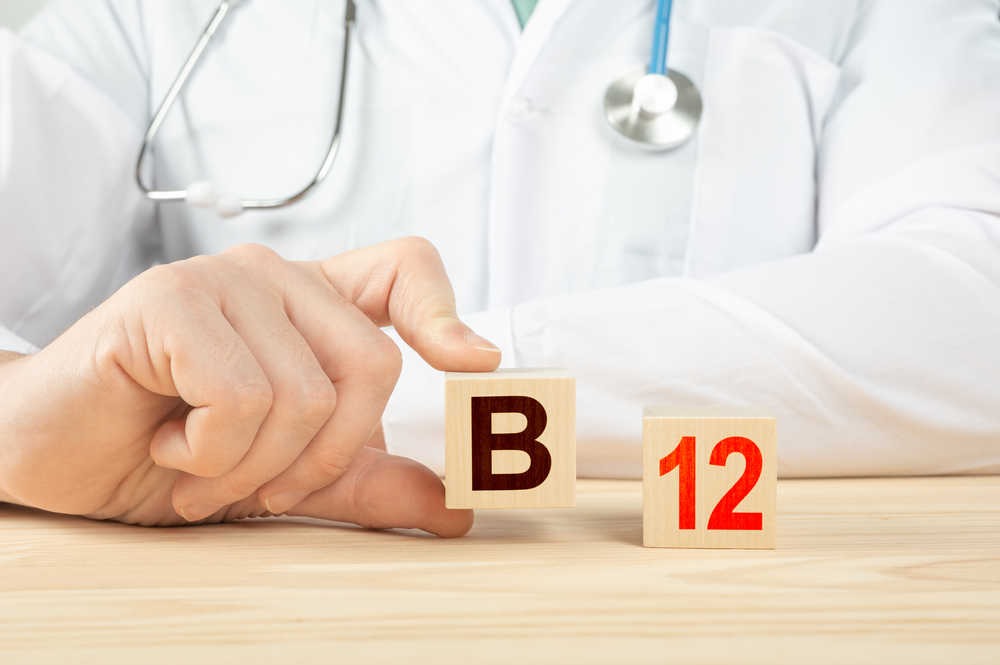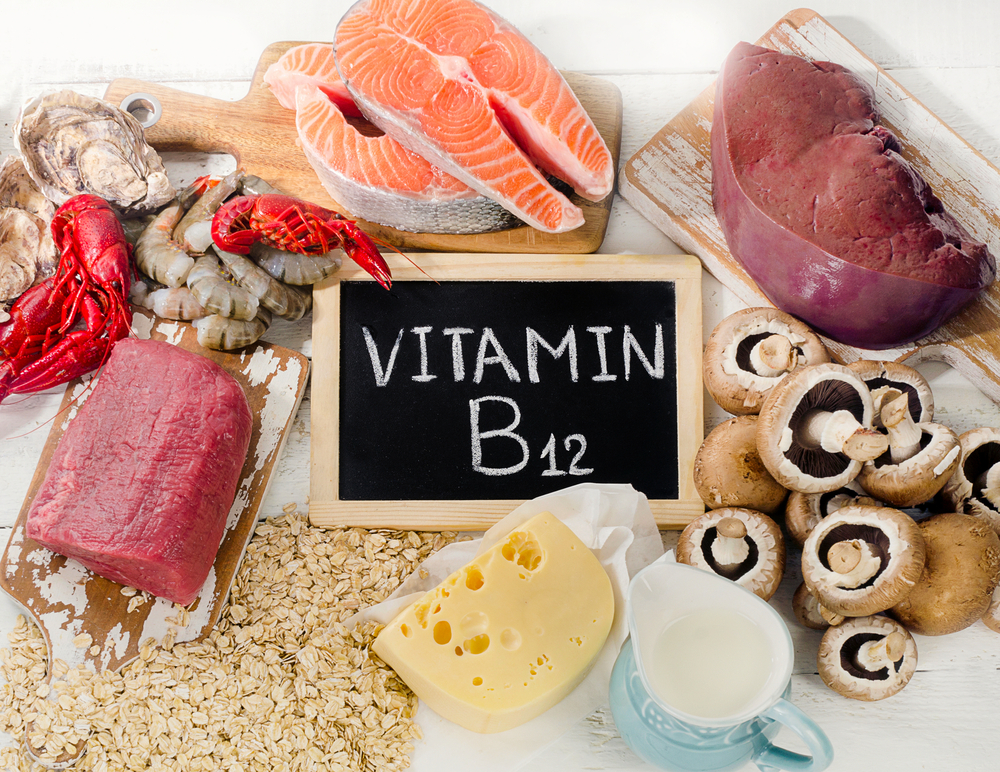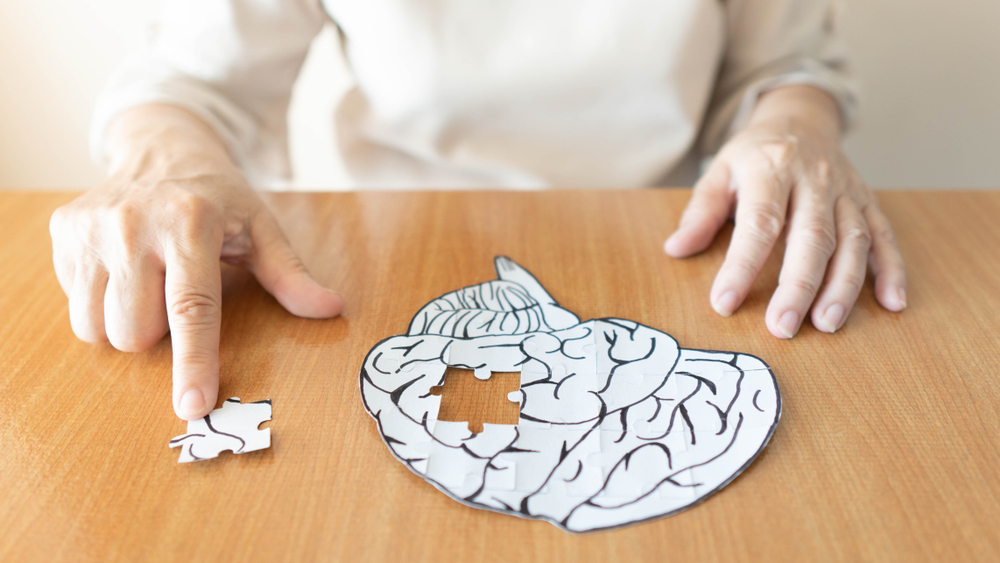Vitamin B12, also known as cobalamin, plays a vital role in many bodily functions. It helps red blood cells form, nerve function, DNA production, and cell metabolism. Foods with this nutrient include animal-based products like fish, meat, poultry, and dairy. As a result, vegetarians or vegans are more prone to a vitamin B12 deficiency since there is no adequate plant-based source of this vitamin. But they are not the only ones at risk of deficiency. People with digestion issues that affect nutrient absorption are at risk. And so are older adults. Untreated, a deficiency could lead to various health issues — including symptoms similar to dementia.
Vitamin B12 Deficiency and Dementia

Vitamin B12 deficiency can cause a cognitive decline that looks like signs of Alzheimer’s. These symptoms can include memory loss, increased agitation, and changes in behavior. So it’s important to know the difference because B12 deficiency can be treated and the dementia-like symptoms can be reversed. [1] Meanwhile, dementia itself could not be reversed. More symptoms of low B12 include:
- Fatigue
- Weakness
- Poor balance
- Weight loss
- Constipation
- Sore tongue or mouth
- Tingling or numbness in hands or feet
- Depression
- Anemia
- Low blood pressure
- Incontinence
Read More: 8 Signs of Potassium Deficiency
Causes of B12 Deficiency

There are several causes of B12 deficiency, many of which are linked to digestive issues that prevent proper absorption of nutrients. They can include celiac disease, Crohn’s disease, pernicious anemia, alcoholism, and tapeworms. Poor diets, particularly vegetarian and vegan diets, could lack the necessary amounts of this nutrient. Another risk factor is a person’s age since the body’s ability to absorb B12 can decline as it gets older.
Fortunately, it’s easy to determine if symptoms come from dementia or a B12 deficiency. It requires a simple blood test. People being evaluated for Alzheimer’s or another form of dementia should request this blood test to check their levels of vitamin B12. If there is a deficiency, it’s often treated with a higher dose of B12 vitamin, either through oral supplements or through injections. Follow-up blood tests will keep tabs on the treatment and adjust dosages if needed. [2]
Food Options to Prevent B12 Deficiency

A simple way to prevent B12 deficiency is to eat foods rich in this vitamin. They can include:
- Liver
- Beef
- Clams
- Mussels
- Atlantic mackerel
- Alaska king crab
- Wild rainbow trout
- Fortified cereals
- Fortified non-dairy milk
- Nutritional yeast [3]
Should You Take Vitamin B12 Supplements?

Some people take vitamin B12 in a daily supplement or an additional supplement to prevent dementia-like symptoms. However, it’s better to refer to your doctor before taking a new supplement since your levels might be within the healthy range. As of now, research shows that taking extra amounts of B12 does not cause any additional benefits.
It’s also important to note that current studies indicate that supplementing vitamin B12 cannot prevent the development of Alzheimer’s disease. Dementia and B12 deficiency, despite their similar symptoms, are different conditions with different causes and effects. However, a good diet with adequate nutrition, including vitamin B12, can positively impact brain health. Additionally, a person could have Alzheimer’s and a B12 deficiency; in those cases, supplementation may help improve symptoms for some time.
Read More: 32 Signs You Have a Magnesium Deficiency & The Foods You Need to Start Eating Immediately
How is Alzheimer’s Disease Treated?

As of now, there is no cure for Alzheimer’s disease. Once a person begins to develop the disease, there are no treatments available that could stop or reverse the symptoms. However, some medications can help ease the symptoms and slow down the disease’s development. Therapies can help with behavioral symptoms.
Alzheimer’s begins development long before the symptoms appear. People in this preclinical stage have no symptoms and can function normally. But their brains are slowly changing for years or even decades before any signs appear. People are not usually diagnosed in this stage because they are asymptomatic. But it’s important to begin treatment as soon as possible to maintain regular functioning for as long as possible. [4]
How Can Family Members Help?

In addition to medications prescribed by doctors based on each individual case, there are ways to manage behavioral changes. Family members and caretakers can keep their environment as familiar and as comfortable as possible by maintaining the layout of their living space and keeping comforting objects nearby. Try to avoid confrontation when they are irritable or confused, and instead, try to redirect their attention to something else instead.
Fortunately, there are also ways to protect the brain from cognitive decline and lower the risk of developing Alzheimer’s. They include:
- Staying socially active
- Eating a healthy diet high in antioxidants and low in alcohol
- Staying physically active
- Staying mentally active through hobbies like learning a new language or musical instrument, reading, solving puzzles, playing board games, and learning new hobbies such as knitting
Read More: Chest Pain May Be a Symptom of a Common Vitamin Deficiency
Sources
- “Low Vitamin B12 Levels: An Underestimated Cause Of Minimal Cognitive Impairment And Dementia.” Cureus. Shazia Jatoi. February 2020
- “Is It Alzheimer’s Disease or Vitamin B12 Deficiency?” Very Well Health. Esther Heerema, MSW. April 5, 2022
- “Foods You Should Eat if You Have a B12 Deficiency.” WebMD. Keri Wiginton. January 16, 2023
- “Alzheimer’s Disease.” Cleveland Clinic. Keri Wiginton. December 10, 2022

